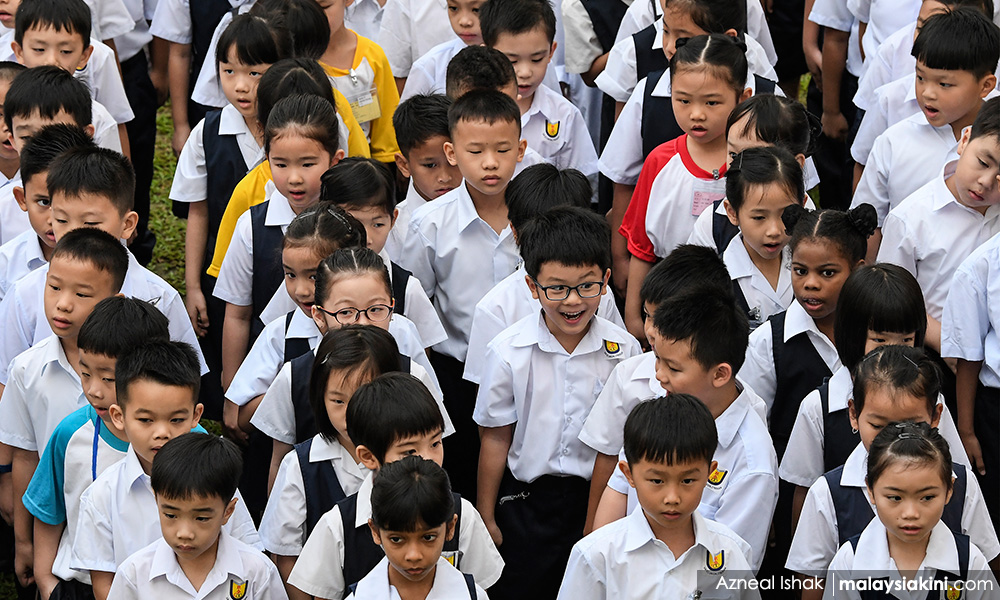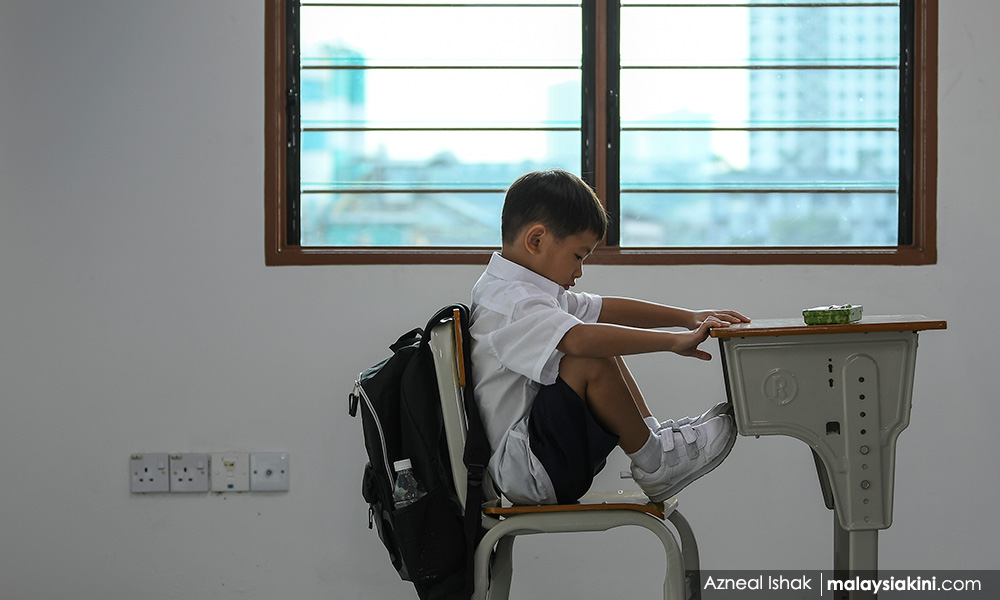COMMENT | The National Early Childhood Intervention Council (Necic) welcomes comments by Deputy Education Minister Teo Nie Ching on the Education Ministry’s “Zero Reject Policy” and initiatives to ensure children with special needs have equal access to learning.
Necic is a registered coalition of parents, therapists and professionals from a large number of NGOs and agencies working with and advocating for children with special needs.
We are delighted that the Education Ministry is implementing proactive initiatives for children with special needs, to meet the Malaysian Education Blueprint’s target of 75 percent children with special needs in inclusive education programmes by 2023.
We applaud the Education Ministry’s implementation of the Zero Reject Policy, which ensures that no students with special needs are turned away from schools.
We strongly agree with Teo’s call (reported in Sin Chew Daily) for schools to not use the three-month probation as an excuse to push children with special needs away from mainstream classes. We are also encouraged that the ministry has plans to build accessible school facilities so that children with physical disabilities have barrier-free access.
We also applaud the directive that an Individual Education Plan is made compulsory for every student with special needs, regardless of the education programme they are in.
The focus, however, appears to be targeted at children with physical disabilities and Special Education Integrated Programme (PPKI). Children with special needs still need to meet certain uneasy criteria set by Education Ministry’s Checklist for Inclusion Readiness (SSKI) before they can be considered for the inclusive programme. This is contrary to the principle and philosophy of inclusive education.
Inclusive education means that all children, regardless of characteristics and learning abilities, receive education alongside their peers. Inclusion is not about the child fitting in and meeting mainstream education targets, but about making changes to the school system and environment to ensure the child participates fully and meaningfully in school.
Approximately 50 years of research evidence is clear that inclusive education, not integration or segregation, is the most effective in cost and educational outcomes for all children, with and without disabilities.
There is no evidence that inclusive education hinders the academic outcomes of children without disabilities.
Research has shown that children with disabilities in inclusive classrooms perform better in academic skills, such as language, reading and math skills; form positive peer relationships; develop better socialisation; and have fewer behavioural problems compared to being placed in segregated settings.
Children without disabilities in an inclusive environment can achieve academically, develop more effective communication with all peers, have less fear of human differences, are more adept at interacting with people who look or behave differently, and can nurture respect for people, reduce prejudice, discrimination and bullying.

Hence, inclusion fosters awareness, acceptance and appreciation of individual differences and diversity. Children with and without special needs not only benefit from but thrive in inclusive settings.
Segregated education
Currently, children with special needs mainly attend the PPKI programme, itself a form of segregated education.
Although the Education Ministry reports that in 2017 (Quick Facts 2017 Malaysia Education Statistics, p 23), 25,396 students with special needs were being educated in inclusive mainstream classrooms, more than half were only partially included (13,081). This does not accurately reflect the practice of inclusive education in its truest sense.
The Inclusive Education Programme (PPI), as currently practiced in our schools, is placing children with special needs in the mainstream classrooms and expecting them to keep up with their peers without disabilities.
Some of this inclusive programme only happens for non-academic subjects like art, music and sports, instead of a full school day. Often times, there is no additional support or modification in curriculum and the child with special needs is expected to “keep up”.
Necic would also like to make a few suggestions to enhance the ministry’s initiatives so that all children with special needs indeed have equal opportunities to education.
1. Zero Reject Policy and an Inclusive KPI
Adopting the Zero Reject Policy is a significant step forward, which states that no children should be rejected from schools. This should not be interpreted to mean admitting children with special needs into the PPKI programme.
It is a huge misconception that these non-mainstream programmes provide better learning outcomes and environment for children with special needs, because it does not constitute inclusion.
We should evaluate school effectiveness based on inclusion KPIs. Schools will be prompted to consider the diverse needs of all students and make adaptations to enable full and meaningful participation in schools.
Besides that, accessible facilities, providing a flexible curriculum, multiple assessment methods and school-wide positive behaviour support are best practices that all mainstream schools should adopt in implementing inclusive education.
2. Individual Education Plan (IEP) to be implemented effectively
We would like to emphasise that the IEP is important for all children with special needs, including those included in the mainstream classes as their needs are invariably unmet.
It is encouraging that Education Ministry’s Inclusive Education Guidelines states that IEP involves shared planning with parents and multidisciplinary team (eg therapists and doctors).

Unfortunately, it is not widely practiced in reality. IEP should be routinely shared, discussed and planned with parents and therapists, who provide crucial input to support children’s learning.
3. Deploy PPKI teachers to mainstream classes
About 15 percent of children in our mainstream classes have some form of special needs (eg autism, dyslexia, attention deficit hyperactive disorder, visual/hearing impairments and physical disabilities) and currently their needs are not well supported.
PPKI teachers are a vital source of support and should be deployed into mainstream classes to support teachers in differentiating and co-teaching lessons; adapting teaching materials and lesson instructions; and planning behavioural and social skills support strategies.
The concern that our schools and teachers are not yet ready for inclusive education is real. However, it should not be a hindrance for us to implement inclusive education in all our mainstream government schools.
While we wait for the Education Ministry to provide teachers with more training and knowledge, we hope the district education offices and schools could be empowered to engage with the disability community to provide hands-on training for teachers. A supportive and inclusive attitude will enable children with special needs to participate in the mainstream schools fully.
Inclusive education is a right for all children.
It is our responsibility to make the right real.
THE NATIONAL EARLY CHILDHOOD INTERVENTION COUNCIL (NECIC) acts as a forum to discuss, advocate, monitor and review all policies and actions related to early childhood intervention.
The views expressed here are those of the author/contributor and do not necessarily represent the views of Malaysiakini.

